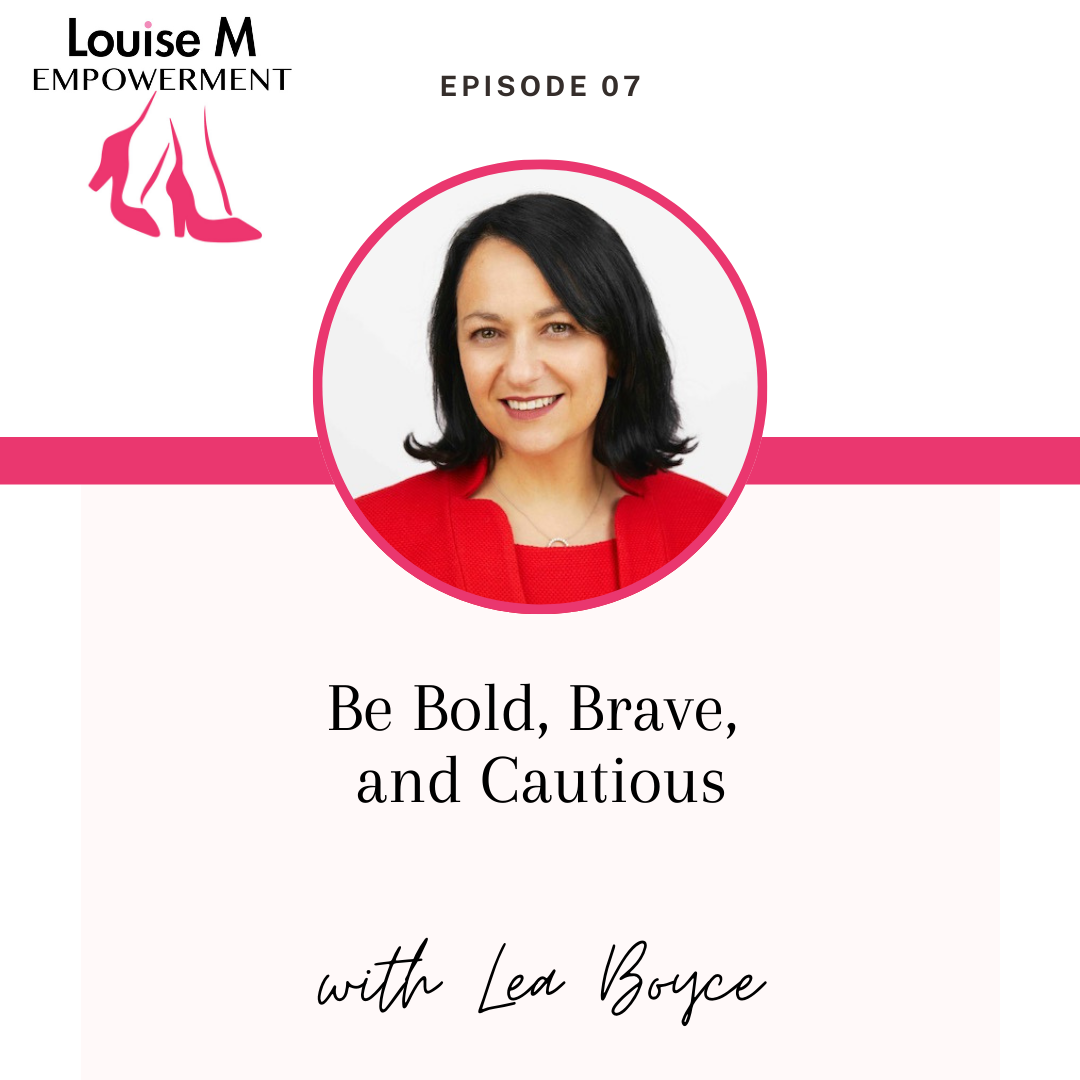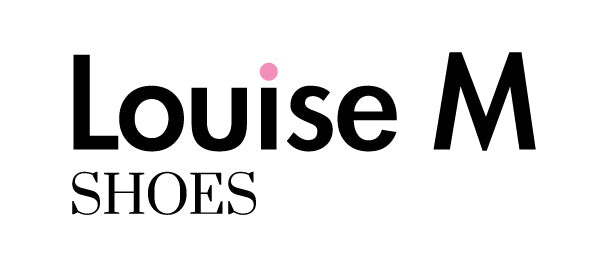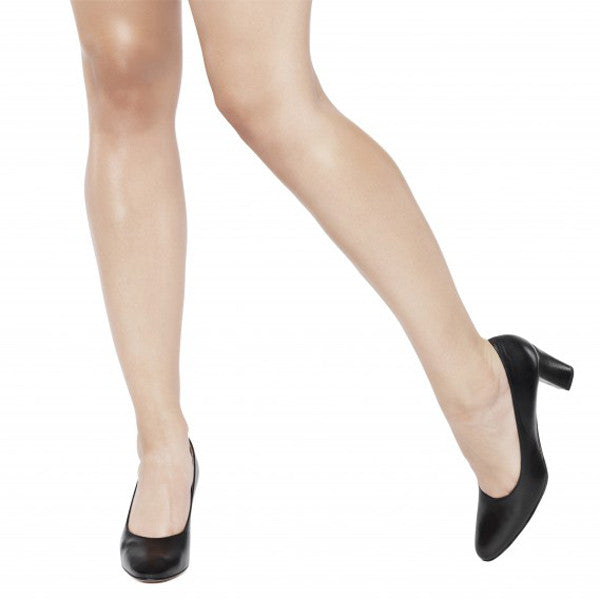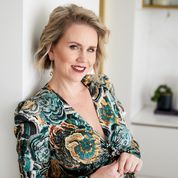
Louise M Empowerment with Louise Matson, Founder of Louise M shoes and Lea Boyce, Boyce Family Office
“So while some might say be careful or be aware of where you are going when you walk out the door, be aware is more the message that I want to give them and I always add, have fun!” - Lea Boyce
Empowerment is defined as the process of becoming stronger and more confident, and you feel like you can do anything. However, this is a double-edged sword. When you face the real world, you will encounter many limitations that will hinder you. In order to fully use your empowerment, we are pleased to offer you this podcast that will help you to be bold and brave.
In this episode of Louise M Empowerment Series, we are joined by another inspiring woman, Lea Boyce. Lea has an extensive background working with large family businesses in leadership roles including her own Family Office.
Lea’s areas of specialty include business investments, family office, succession, governance, property development, and philanthropy. Lea is also active in the anthropological studies of generational family relationships.
Sit back, relax, and enjoy watching this episode now! Empower yourself, empower others!
Transcript below:
Louise Matson (00:03):
Well, hi there. Thank you so much for joining me on the Louise M Empowerment podcast series. It's a great pleasure to have you here. So a wonderful twist is adding your family business to my podcast series, and that's why I am particularly interested in interviewing you today for. So firstly, tell me a little bit about your business and it's Boyce Family Office. Is that correct?
Lea Boyce (00:29):
That's right Louise, thank you for having me. I'm really excited to be a part of this. Um, it's a Boyce' Family Office. We're about, 21 years ago, we were founded and it's my husband and I, and we run a multi-family office looking after high net worth family groups, and we also support sort of up and coming businesses as well and young entrepreneurs and things in their journeys as well. So we've been doing that for some time and it's my husband and I as the founders of that, off the back of our own families. And then we also have fortunate enough to have our oldest daughter working with us as well
Louise Matson (01:08):
Great now that said, this is where it comes in. Well, firstly, actually we're talking about empowerment. So what does empowerment mean to you?
Lea Boyce (01:16):
Gosh, you know, I know it's something different to everyone and if we think about the general idea of empowerment as being strong and confident, and I think that, they're great sort of attributes of being empowered. But one of the things for me that, that I really see about empowerment is this idea of being bold and being brave. So that's kind of the meaning that I've put across what it is to be empowered, to be bold and to be brave.
Louise Matson (01:44):
Love that just short and succinct and strong and definite.
Lea Boyce (01:51):
Yeah. I, you know, I feel that it's got enough strength in it, for me to not have to necessarily expand too much on, it's pretty self-explanatory.
Louise Matson (02:00):
So what I am intrigued though, is going back to our childhood and seeing where our empowerment as an adult has come from, did it come from childhood? And of course family means so much to you. So what did, what did your family comprise of how many siblings have you got and did your parents make you feel empowered and heard, and valued as a child?
Lea Boyce (02:29):
I'm lucky enough to have one brother and one sister and they are both older than me, so I'm the baby of the family, but they're awesome. I love them dearly. And they've obviously been great encouragement because they are, you know, a few years older than me. So they've both been great encouragement in my life. And one of the things we were really lucky with growing up is that we very much grew up in a family where our parents and our grandparents, but particularly our parents said you can do and be anything you want to be. So I never had that kind of thing of saying, well, you know, girls are nurses and boys are the doctor or whatever it is we grew up with. If you want it bad enough, you can be anything you want to be.
Lea Boyce (03:18):
And then that, though is kind of is this double-edged sword because you know, you go out into society and you go, but can I, you know, it sounds good, but can I, when you're out in the real world, but you know, one of the things with that is that we, you know, mum and dad always said, yep, you can be anything you want to be. But then on the other hand, as I'm walking out the door all the time, I always got this message of be careful. And so it was kind of actually a little bit of a kind of contradiction in terms, because it was like go out into the world, be anything you want to be, which requires this idea to be bold and be brave. But yet on the other hand, I'm getting told to be careful. So I often wonder about what if they had have changed that to be daring, you know? So, uh, yes, you can be anything you want to be and be daring rather than be careful because the reality is we're careful, none of us go out the door wanting to get hurt or, or anything happen to us. So kind of, it was hard coming to terms with that. So how do I be careful, but then how do I go out and grasp what it is that I want in life?
Louise Matson (04:27):
Yeah. There's a couple of things I thought you said, because I was going to say, you've got a European background and I was wondering whether you grew up being told to be the wife, the good wife and the mother, and have to stay home and do that while the husband goes out and works. But that's not the case at all for you.
Lea Boyce (04:51):
No, no, very much. So. I don't think that, you know, my brother was treated any differently to my sister and I, I believe that we were all given the same opportunities. We were all encouraged to do the same things. So I actually didn't probably have that gender lens until I kind of went outside of my family group. And I had a very strong grandmother, my father's mother, Italian come from the islands in Italy, you know, in a time where they had to the women had to kind of do the surviving because all the men were off at war. So they had to produce their own food. Do all of that. My grandmother was the Island's kind of midwife yet she had no training and she was also the one that went and sat with people when they were dying and those types of things.
Lea Boyce (05:43):
So she kind of had this incredible background where she had to always have this amazing strength, but yet she was this tiny, quiet woman who just didn't say much, but when she did speak, you paid attention you knew it was going to be important. So it was, the power was almost in her silence that you just kind of knew she was there and she was strong. And, you know, she took the pay packet from my grandfather every week, and dished him back, the spending money kind of thing. So she always had that sort of powerful element about while being a very solid woman.
Louise Matson (06:21):
And do you think you realized that then, or yeah, it was the silence. You thought about it now that you're an adult.
Lea Boyce (06:33):
Think it's been in probably the last 10 years that I've really thought about it. And you know, I turned 50 in December and I remember growing up, one of the things that my dad always said to me, he said was, you know, kind of, no one ever really takes you seriously until you're 30. You know, life kind of begins at 40 and then by the time you're 50 things make sense. And I think that there's a lot in that. And I think that those ages between 40 and 50, for me, I did a lot of reflecting and thinking about what does family mean? How does that look? Even though I was already working in that field, but I put a lot more into it. And I actually decided that, you know, that I was the mother of two daughters.
Lea Boyce (07:20):
So I kind of had a responsibility to make sure that they went into a world a little bit wiser and smarter earlier on in life than I did. Because as you say, you don't often see the empowerment of my grandmother until you're an adult yourself. So I took myself off back to university and did anthropology and gender studies as a mature age student during my forties. And the reason that I really did gender studies as a part of that, was because I felt that responsibility to the next generation as a woman of my age group, I felt that I had to kind of fly the flag a little bit and educate myself to make sure I could be here as an advocate for them to just maybe make a little bit easier for the next generation.
Louise Matson (08:10):
Yes. Well, , that's where I'm leading with this series as well is how did your childhood affect your adulthood? And I mean, you did get some empowerment, but silent empowerment as a child, but how has that grown as an adult and have you gone out and become more empowered? I mean, you had that you can be whatever you want to be, but be careful at the same time. And I sort of had that a little bit too. You can be whatever you want to be, but when I was going out the door, it was like, well, you're not doing that are you? Or you're not, you don't want to do that. Or you're not wearing that so we of had a similar catch 22 kind of happening there.
Lea Boyce (09:00):
And you had brothers too. So that's kind of another element that you perhaps didn't necessarily have that other sister to kind of balance things out a bit.
Louise Matson (09:09):
Yes. I have four older brothers, so it was quite different for me. With your girls when they were walking out the door, were you saying be daring or were you saying be careful?
Lea Boyce (09:20):
Well, if you ask them, they probably say that I say be careful, but I'm actually really conscious of it. So while some might say, be careful or be aware, you know, of where you're going or that type of thing, be aware is more the message that I try to give them, but I always add, have fun. And I probably don't necessarily pick up on that bit. They probably pick up on the bit of me saying, you know, be aware, be careful, but I always add, have fun because that was kind of the bit that I felt was missing when I grew up was that, but have fun. So I am quite conscious that I'm repeating history and you understand what it is, you know, why you have daughters too. You understand what it needs to be a parent of a girl and you know, send her out into the world, which you know is not necessarily all awesome. And you do want them to be careful and you do want them to be aware, but at the same time, I don't want to repeat history.
Louise Matson (10:18):
Yes. I've brought them to be quite independent, which is good. Um, but I've got a granddaughter now. So I think this is a part of the series as well. I'm thinking I don't want to be saying, and I find myself be careful, you know, she's about to fall off the couch or, but yes, I'm aware of that as well. So, you mentioned education and I went back to uni in my forties as well. And it did, it gave me confidence and, I don't know.. I just valued what I, what I learned and, and took it into my business. So, what else I noticed you've got memberships in different organizations, such as the Australian Institute of Company Directors and Family Business Australia, you know, do those organizations, having a membership in organizations help you with empowerment.
Lea Boyce (11:12):
Well they can do Louise. And I think it depends on the organization and what that organization is trying to achieve. I think, you know, a membership that I really enjoyed that I have has been Family Business Australia because they really are about advocating for everyone in a family business, whether they be family members or non-family members working in family businesses. And I've been a pretty proactive member of Family Business, Australia, I suggest. And also being involved in an advisory capacity and things. And one of the last things I've just, assisted them with these is developing a new award for women in family businesses, that will be launched later on this year. And so I think that that's been great because it's been a forum that's allowed me to have a voice and, speak up perhaps on behalf of women in family businesses and helping empower others and future generations.
Lea Boyce (12:10):
So that's been awesome and then another organization I've been involved with, which I think is great from an empowerment point of view is Business Chicks. Um, and lots of people have heard of them, but they have a particular part for business owners and C-suite called business club. And that's been fantastic because you are really connecting with women at the same level in their businesses as you. And you've got this cohort that really, it turns out has been all about empowerment. And, you know, I feel like I've got 50 women who are my biggest fans, you know, kind of standing behind me. And so that's been a huge thing from an empowerment point of view because there everybody's there saying, Hey, let's learn how to shout from the rooftop that we're great. Let's share our wins let's do all of that. Let's not sort of sit back and go, well, I did something great and I'm just going to keep it to myself. No, I'm going to shout it out to the world and I'm going to be happy about it. So I think that, you know, everyone needs to do that and go out and find those organizations where they feel valued, where they feel that they can, make a difference and where they feel they're empowered.
Louise Matson (13:18):
Yes. Well, I'm a member of Business Chicks and I didn't realize you were because you are a client of mine as well. And I only learned just recently that you're a member of Business Chicks as well. So you kind of instantly have a connection don't you? Uh, and, and I really valued the Business Chicks membership as well. They've helped me greatly in my early years in particular. Look, you also, have you got something to do with, well you're interested in the Femeconomy. I mean, you were just talking about women in business. Um, so you've, you've written some articles or how, what's your involvement there?
Lea Boyce (13:53):
Yes a member of Femeconomy, which is all about supporting, basically women businesses that are either owned by women, or if they are a corporate have met the requirements of the number of women on their boards. And so, you know, being a part of that organization again, is about empowering women. And, you know, and I think when I, so we have a family motto and our family motto is make a difference and leave a legacy. And so what, so for me, that's empowerment. If I can go out there and I can make a difference and I can leave a legacy, and by legacy, I mean, you know, helping other people. So if, if someone, when I'm not around, if someone says that she really helped me once she told me these, she gave me this piece of advice, or she did this, or whatever, if someone talks about that, then that's what I feel leaving a legacy is. And that is about empowering others. So empowerment for me is also about how do I help others feeling empowered.
Louise Matson (14:55):
So on that note, how do you deal with, female entrepreneurs, young business women when they come to you or they're quite lost in where to go, or, you know, they notice there's a similar thing that they, they are feeling pretty,, unconfident.
Lea Boyce (15:18):
And I think that, you know, obviously lots of them sort of when they first come to me, it's usually because they've got a problem and they are feeling lost. And very often when you work through it, what's often the answer is, is this idea of confidence, of feeling empowered, feeling worthy, of feeling like they've got something to say that their business is important, all of those things and that someone's going to listen to them. So I think that that's, you know, it's a great opportunity to kind of impart that. And you know, one of the things I talk about, there's a great movie and, you know, shows that I've got kids as the great movie that talks about having 20 seconds of insane courage. You know, it was about him asking out a girl and this idea of having 20 seconds of insane courage. And so it's actually often something I always talk about with, with young female entrepreneurs is this idea of having this, you know, 20 seconds of insane courage to pick up the phone and make that phone call to the person that you don't necessarily think is going to be an open door for you.
Lea Boyce (16:24):
And so I think that it's about, you know, being able to put yourself out there. And so that's generally where it starts so many times when I'm working with, with young female entrepreneurs, is that idea of just having that courage and that self belief and that you are worthy and that you do have something of value to say
Louise Matson (16:46):
That's really, really good, because quite often, it's not the people closest to you that give you that empowerment and that encouragement. It does often come from outsiders that can see more in you perhaps than, than your family does.
Lea Boyce (17:05):
We kind of talk about, so in the Boyce Family Office, you know, we work on what we call our FISH principles. And, so, and that is basically F I S H. Okay. So you've got your financial capital, you've got your infrastructure capital, you've got your social capital and you've got your human capital. So they're your fish principles. So everyone tends to think about the first two. They go, well, if I've got my financial capital and my infrastructure all set, then perfect, I've got a great business in a way I go, but no, if you don't have the social and the human capital right, then that's not going to be there for generations to come. And we think in generations, so we don't make decisions about, you know, what's great for next year or the next five years, we make decisions around what's good for the next three generations of the family.
Lea Boyce (17:59):
And that's where your social and your human capital is so important. And that's where everybody goes and gets these business mentors and does all this. And they kind of do all this business planning and everything becomes around these financial and infrastructure points and forgetting about what's the social and the human elements of that, because that's what creates success for multiple generations. You know, we're fortunate enough to work with families around the world who, you know are 10, 15 generation families. And that's where the success comes from. It comes from that side, not necessarily the financial and the infrastructure will come and we'll keep going if you get the core, right, which is the social and the human, and that all feeds into this idea of empowerment.
Louise Matson (18:49):
And you saying how communication is so important to not only hold families together, but businesses together as well. And it's the way we communicate. And, and right as we're talking about, as children and as parents, as grandparents, communication is so important. And the words that we do speak to people is very important to help them feel empowered as well. So if anyone wants to get in touch with you Lea, what's the best way?
Lea Boyce (19:19):
Absolutely. They can jump on our website at BoyceFamilyOffice.com or they can look me up on LinkedIn and reach out my emails and phone numbers are there. And I'm happy to have a chat to anyone who thinks that we might be able to assist them in feeling empowered and valued and creating a business that will last for generations.
Louise Matson (19:43):
Well, I've loved speaking with you today, and I always love catching up with you. So thank you so much, Lea. I will go and be bold and brave and have 20 seconds of insane courage. I'm going to remember that one as well, thank you so much for your time. And I look forward to speaking again very soon.
Lea Boyce (20:03):
Thanks so much, Louise. I know that my red Louise M shoes always make me feel empowered. So if anyone needs that physical empowerment, I highly recommend a pair of your lovely patent red shoes.
Louise Matson (20:16):
Thanks so much, Leah. Yes. You've got a couple of different styles haven't you. Thank you Lea. All the best and I'll speak to you.
Lea Boyce (20:23):
Thanks Louise.
Lea Boyce (20:24):
@businesschicks @familybusinessaustralia #familyoffice @femeconomy @austalianinstituteofcompanydirectors
Visit Louise M shoes



Leave a comment
This site is protected by hCaptcha and the hCaptcha Privacy Policy and Terms of Service apply.